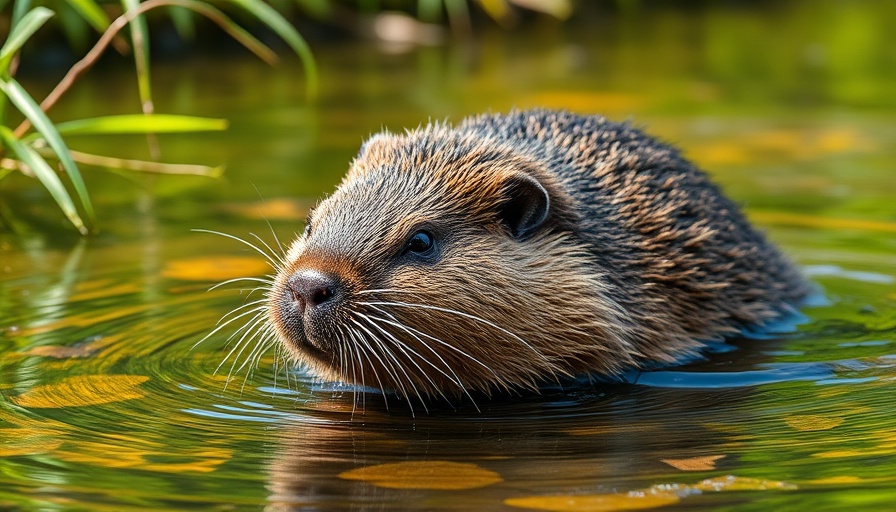
England’s Beavers Coming Back: A Bold Step for Nature Recovery
After centuries in the shadows, beavers are set to reclaim their rightful place in England's rivers and lakes. The announcement from the UK government about their planned reintroduction marks a significant milestone in the struggle for biodiversity and ecosystem recovery. Once native to the British landscape, Eurasian beavers were hunted to extinction by the 16th century, prized for their meat, fur, and the fragrant castor oil secreted from their glands. The return of these 'ecosystem engineers' signals a new era of environmental stewardship.
Why Beavers Matter: The Impact on Ecosystems
Beavers are not just cute and cuddly; they are recognized by biologists as a 'keystone species' due to their extraordinary ability to shape their environment. Their dam-building activities create ponds that not only provide habitats for countless other species but also help regulate water levels, mitigate flooding, and enhance water quality. According to Natural England, these industrious rodents can play a vital role in restoring degraded landscapes and enhancing the country’s biodiversity.
The Path to Reintroduction: A Considered Approach
The planned release of beavers will be carefully managed to address the complexities that come with their return. Tom Bradshaw, head of the National Farmers’ Union, raises a valid concern for landowners, advocating for the right to use controlled measures should beavers disrupt agricultural lands. The government acknowledges these worries and includes provisions within the reintroduction program for managing beaver populations, allowing for measures like relocation or population control as a last resort.
Seeing Progress: A Shift in Attitudes
This reintroduction program represents a considerable cultural shift in attitudes toward wildlife conservation. A 2022 public consultation revealed overwhelming support for the idea, showcasing how much public opinion has evolved regarding cohabitation with wildlife. As conservationists, farmers, and wildlife enthusiasts unite for this initiative, we witness the potential for meaningful dialogue and collaboration.
Pollution, Drought, and Beyond: The Broader Picture
Currently, approximately 86% of rivers in the UK are not in a good ecological state. Enter beavers, which could transform these degraded waterways into vibrant ecosystems through their construction of dams and wetlands. By improving habitats that filter pollutants, store water during droughts, and create rich biodiversity sites, beavers could become a cornerstone of the UK’s ecological restoration efforts.
A Call for Community Engagement
As communities begin to engage with these rewilding efforts, it is crucial for everyone to be informed and involved. Beavers’ impact extends beyond mere ecology; they can enhance local economies through eco-tourism and agriculture that takes advantage of a healthier environment. Local agencies are encouraged to provide resources and knowledge to help landowners adapt to the changes beavers will bring. By fostering a sense of shared stewardship over the land, communities can ensure a harmonious relationship with these returning inhabitants.
What Lies Ahead: Future Developments
The first licensed reintroduction will happen at the National Trust’s Purbeck Beaver Project in Dorset, with expectations of improving biodiversity and ecosystem health across the reserve. As the program unfolds, it will be essential to monitor results carefully and ensure that stakeholder concerns are addressed proactively. The journey of reintroducing beavers may serve as a blueprint for future rewilding initiatives across the UK.
In conclusion, England's decision to reintroduce beavers is more than a return of a species; it's a leap towards a more balanced ecosystem and an opportunity for communities to engage with their nature. By understanding and supporting these efforts, we can all contribute to a healthier environment, one dam at a time. Let’s learn together how to create spaces that can sustain diverse forms of life!
 Add Row
Add Row  Add
Add 



 Add Row
Add Row  Add
Add 

Write A Comment